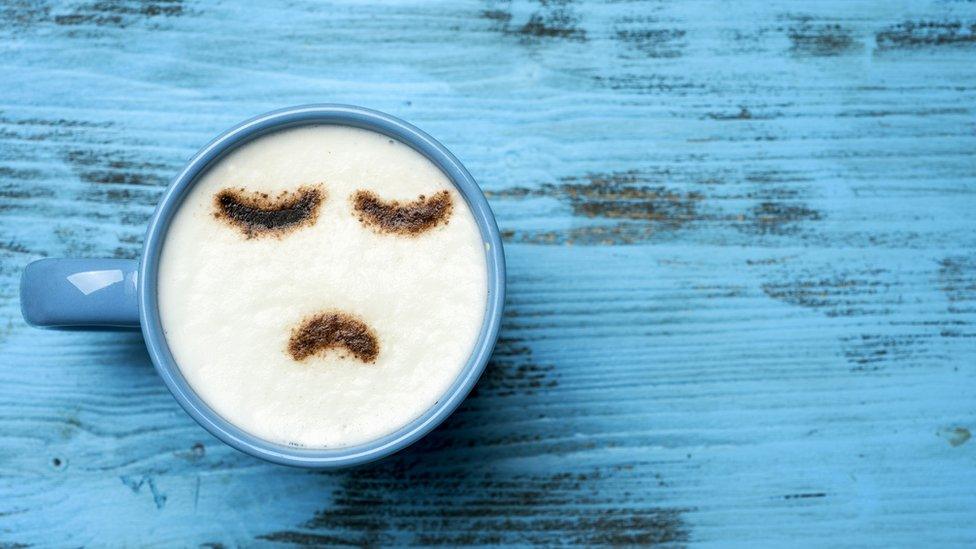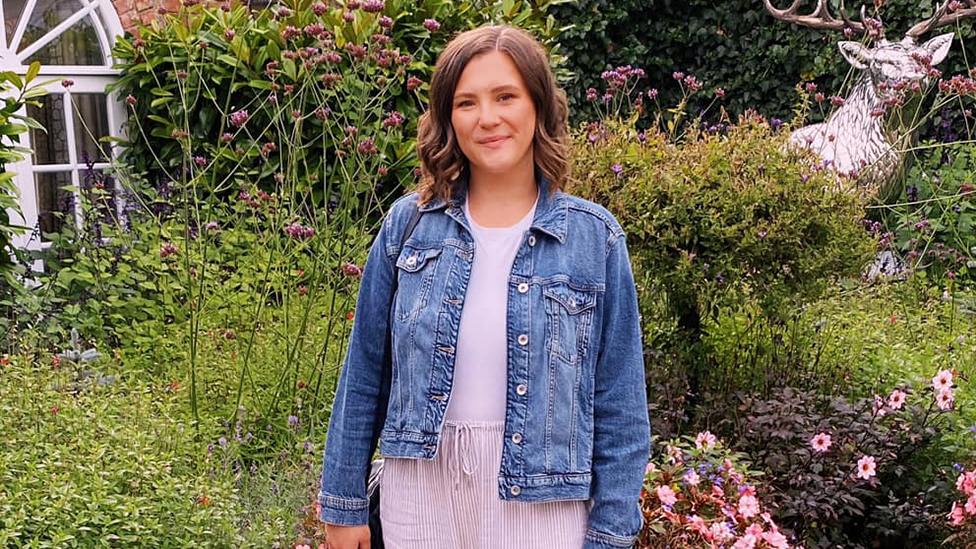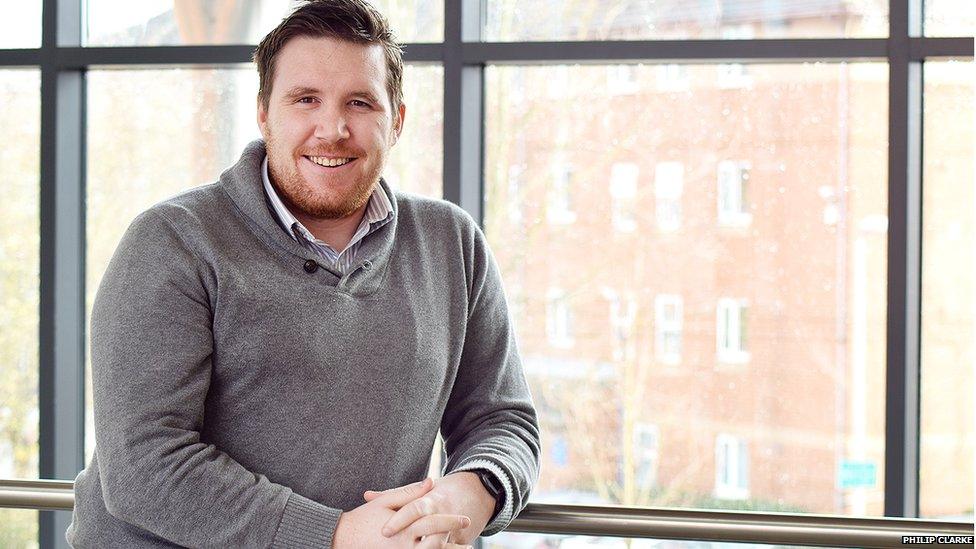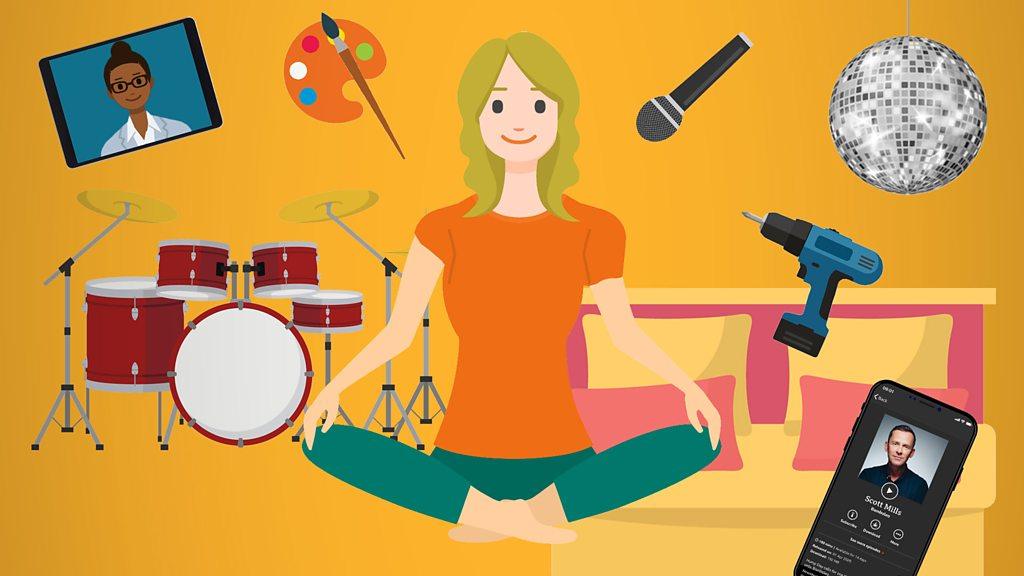Blue Monday: Why it's a 'load of rubbish'
- Published

Blue Monday has been trending online
Christmas is over, it's cold and dark outside and you may be in an endless cycle of doomscrolling.
Blue Monday - also known as the most depressing day of the year - has been trending online.
It might feel relatable after the past year but, unsurprisingly, there's nothing scientific about it.
The name was reportedly coined by psychologist Cliff Arnall in 2004, it falls on the third Monday in January every year.
This has been disputed, external by others over the years.
He came up with it after a holiday company asked him for a "scientific formula" for the January blues.

Sophie thinks Blue Monday can be damaging to those with mental health issues
Sophie Edwards, from Kent, has suffered with panic attacks and anxiety since the age of seven.
The 27-year-old thinks labelling one day a year can be damaging for people dealing with their mental health issues.
"I think Blue Monday is a load of rubbish to be honest. A completely made-up marketing gimmick - it's just a label on an ordinary day," Sophie told BBC Newsbeat.
"But the messaging about it being the 'most depressing day of the year' can be daunting for people who already have a mental illness.
"We all have our good and bad days and they have nothing to do with a random made-up day in January.
"I like to plan ahead - so if I look at a day and see that it's labelled the most depressing day of the year I'll get anxious about that and think that I need to be happy on that day."

Sophie uses her blog to talk about mental health
But she also thinks the day can open up a conversation about mental health.
"Instead of leaning into the gimmick about it being a 'depressing day', I use the opportunity to catch up with a friend over a cuppa.
"It's a great way to take a moment out of our busy lives and check in on how we're doing.
"I've seen a lot of people online saying things like: 'Today is just another day, but if you do need someone to talk to, I'm here'.
"It's raising awareness that there is a massive support network both on and offline," she says.

Dr Philip Clarke says Blue Monday isn't scientifically proven
Dr Philip Clarke, a lecturer in psychology at the University of Derby, agrees.
"I started speaking out against Blue Monday when I saw companies were trying to use it as an excuse to sell things," he said.
"I can understand why people would feel down in January, you've just come off Christmas - spending a lot of time with family, overindulging and it's a lot darker outside.
"The key thing to remember is that Blue Monday isn't scientifically proven - there's not even proof January sees a rise in mental health referrals although it may seem that way," he adds.
"But Blue Monday is getting people having those difficult conversations about depression and anxiety and what you can actually do to help with that.
"I think that's a really strong benefit that comes with it."
There have been suggestions to turn Blue Monday into Brew Monday - with mental health charity Samaritans encouraging a chat with family and friends over a virtual cup of tea.
Allow X content?
This article contains content provided by X. We ask for your permission before anything is loaded, as they may be using cookies and other technologies. You may want to read X’s cookie policy, external and privacy policy, external before accepting. To view this content choose ‘accept and continue’.

Top tips

There are things you can do for better mental health
Although Dr Clarke thinks it's important not to confuse feeling low with depression, he has tips everyone can use for better mental health.
Exercise
"Exercise is a fantastic thing people can be doing as it releases happy endorphins and chemicals. It doesn't have to be exercise in the gym because that can be off-putting for some people.
"It just about increasing your physical activity."
Assess your New Year's resolutions
"A lot of people fail their New Year's resolutions within two or three weeks.
"But if you have failed, look at why and use that as a learning experience.
"This gives people hope that they can still work towards a goal for the year and not beat themselves up about it."
Volunteering
"One reason people love Christmas isn't necessarily the receiving, but the pleasure they get from helping people.
"This can be a good way to get a happy boost with no financial implications."
You can visit BBC Action Line for further help and support.
A version of this story was published in 2022.


Related topics
- Published8 October 2020

- Published24 April 2020

- Published14 October 2020
